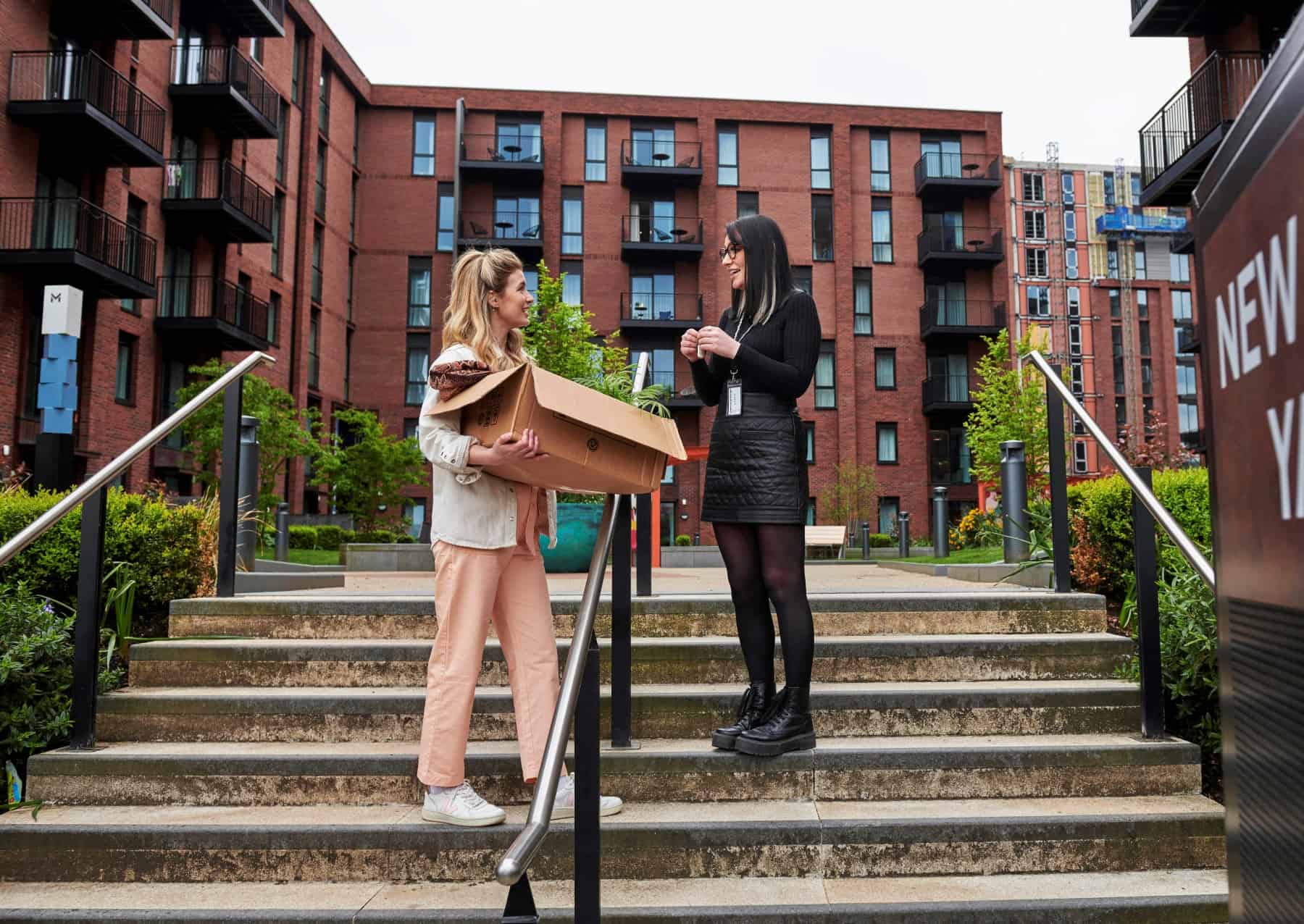
What is AST? What is PCM in rental terms? How does referencing affect your renting process? What about a break clause? You got questions, we got answers.
You’ve just completed a flat viewing, the location is ideal for work, and that bedroom already feels like home. You’re sold and you want to make an offer right away.
But, before you start the ball rolling, take some time – exactly 5 minutes to be precise – to read through our A-Z of terms to help you cut through some of the renting jargon and get you closer to getting the keys.
Whether you are in the process of signing a rental agreement, terminating a contract or simply looking for a property to rent, here are some common terms explained.
AST stands for ‘Assured Shorthold Tenancies’ and is the most common tenancy agreement between a tenant and a private landlord or letting agency. It enables the landlord to let out a property to private tenants – it’s most likely that this is the kind of tenancy you’ll be entering into.
This is an important one, so double-check this term in your contract. The break clause allows you to terminate your tenancy before the default date, for example, if you decide to move to a different city. This is usually a two month period but can vary. While Get Living has a ‘resident-only break clause’ – meaning only tenants can end their tenancy sooner than their contracts state and therefore giving them greater security – in most other contracts landlords also have the option to end the tenancy earlier.
BTR refers to build to rent. That’s us. Get Living is a private landlord operating purpose-built housing developments for rent across the UK. We offer longer tenancy agreements and our neighbourhoods in London and Manchester are designed to make living in your favourite city even better.
Consumer Price Index is the official measure of inflation of consumer prices in the UK. The CPI measures the average change from month to month in the prices of goods and services purchased by most households. Renting and housing prices are affected by CPI changes and many leases include rent reviews based on the increase in the CPI.
Get Living applies CPI to rent annually, which sometimes can be less than market value depending on how the market has changed.
This is a process carried out by an authorised agency to check your financial behaviour, with a view to confirm that you are reliable bill-payer.
When you sign up to rent with Get Living, our partners at Canopy will carry out the referencing process by asking you to create your Rent Passport™ – a quick and easy process of collecting your digital rental and financial history. Once it’s done, you never have to fill out a form again!
An Energy Performance Certificate shows how energy efficient a home is. An EPC gives a property a rating from A (the most efficient and lower running costs) to G (the least efficient and higher running costs). The best bands are between A to C and new build homes tend to have higher ratings. Accordingly, all energy performance certificates for Get Living homes are rated B or C.
Check how to be more energy efficient in your rental home.
This is a tenancy agreement that lasts for a set amount of time, for example, 12 months. A fixed-term tenancy often can’t be terminated early, so make sure to align your renting plans with the proposed length of your tenancy or negotiate a break clause in your tenancy agreement.
These types of rentals generally come with everything to make your life in the property comfortable. Furnished rental properties tend to include all white goods and basic furniture such as sofas, dining table and chairs, a bed and bedroom furniture including a wardrobe or chest of drawers.
A guarantor is a person who guarantees to pay your rent if you fail to pay your rent and/or bills. A guarantor has no claim to the property you are renting but rather acts as a guarantee to the landlord that the new tenant will not default on rent or property damage.
This is a payment to the landlord or the agency to reserve a property you want. You have 15 days from when you pay a holding deposit to enter into a rental agreement. If you proceed with renting the property, you can either allocate that money towards a tenancy deposit or the first rent payment. If you decide not to rent the property, the landlord has the right to keep a holding deposit.
HMO stands for Houses in Multiple Occupations and simply represents a house share. It is a property rented out by three or more people who are not coming from the same household (e.g. family) but share facilities like a kitchen, bathroom, or living room. HMO licences are managed by the landlord, however, they are defined differently depending on local councils. HMOs help ensure your safety and maintenance of communal areas.
In rental terms, inventory is essentially a report of all the contents in the property (e.g. furniture, paintwork, fittings) and a record of the condition of each item, including the condition of the property together. Inspect all the items in the inventory and report back if anything is missing or not working, and take photos of any damages that aren’t recorded. Only sign the report once you’re sure that it’s accurate because a landlord or an agent will use the same inventory for a final check-up of the property once you are ready to move out.
Lessee or the tenant is a person who rents the property for temporary possession from a lessor.
The lessor is the owner of an asset that is leased. Lessor leases their property to a lessee for temporary possession.
A long term lease or tenancy agreement is a lease that lasts longer than six months. Get Living was a pioneer in the UK rental industry when it begun offering three year tenancies as standard. Our long term leases of three years come with a resident-only break clause.
For rent, PCM means per calendar month and refers to the amount of money you will pay to rent your home each month. PCM is often used when displaying the price of renting a property online and offline.
Rent Tracking™, a product by Canopy, is a system that enables you to boost your credit report, simply by paying your rent on time. The system connects your bank account, enabling Canopy to report your rent payments to Experian, Equifax and TransUnion (three of the UK’s main credit report agents) and improve your credit score, putting you in a stronger position for future mortgages, loans or other financing.
A short term lease in renting is a tenancy agreement that lasts up to six months.
If your landlord does require you to pay a security deposit, this type of scheme protects your deposit. Your landlord must put your deposit in a Tenancy Deposit Protection scheme within 30 days of getting it and return your deposit within 10 days of you both agreeing on how much you will get back.
Did you know? Get Living was the first rental operator in the UK to remove security deposits in 2017. Since then, for everyone who passes referencing, we’ve not held a penny – meaning more money for you to spend enjoying your new home. All applications are subject to terms and conditions.
Unfurnished rental properties do not come completely bare. If you are renting an unfurnished flat, at minimum, it still needs to include: kitchen fixtures, bathroom fixtures, white goods, flooring and curtains/blinds.
This is a no deposit rental scheme that allows tenants to rent without paying for a cash security deposit, instead paying an insurance fee. While this is advertised as a ‘deposit scheme,’ you will not get your initial money back. Tenants will still be liable to pay for any unpaid rent or damages at the end of the tenancy, but if no such situations occur, the Zero Deposit Guarantee will end and there’ll be nothing further to pay.
Get Living does not offer a Zero Deposit Scheme or insurance alternative. Applicants who pass referencing will be eligible for no deposit, with an Advanced Rental Payment to secure the home. Please see our terms and conditions.

Renting with us is simple and straightforward with standard long-term tenancies and a resident’s only break clause.
Our relationship managers will guide you through the whole renting process, from start to finish. With us there’s no middleman and our on-site team is always there to help once you move in. Speak to a member of the Get Living team today to find a home for rent in London or Manchester.


